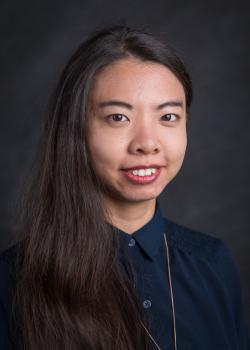
Alumna Xiaodi Zhu, Ph.D. in Financial Engineering 2018 (advisor Steve Yang), was able to obtain her dream job after graduation: teaching others. Currently an assistant professor at New Jersey City University in the Department of Finance, Xiaodi (known as Coco to her friends) teaches both graduate and undergraduate courses in data science and finance, while also conducting additional research and surveys as a part of her position.
Entering Stevens as a graduate student, Coco eventually had the opportunity to continue her studies as a Ph.D. student. During this time, she joined the Hanlon Lab as a lab assistant, and was given the opportunity to help teach courses. “It helped to improve my communication skills, time management skills, and critical thinking; it pushed me to think of solutions to different issues. In that period, I found it really interesting to interact with students while doing my research,” Coco said. “Since I was a kid, I just wanted to be a teacher.”
Learning from both Professor Ionut Florescu and Dr. Dragos Bozdog, Coco mentioned that her experience working at the Hanlon lab influenced her job search and eventual career choice. “When I applied for my job, they were looking for someone who had a background in finance, but also data science and other technical skills. Normally, people don't have both; they either have a finance or computer science degree.” Near her graduation, Coco started job searching, and wanted to pursue academia full-time as a professor. Because of her time at the lab, Coco was able to secure her current position that required both financial engineering knowledge, data science skills, and teaching experience.
Her favorite part of being a professor at NJCU is helping students understand difficult material. For students who have not had any prior experience in data science, the material can be hard to understand at the outset. Coco focuses on finding a way to deliver information in a logical, clear way to show the students what exactly data science is and why it’s so important. “You keep looking for a solution that can help you teach efficiently. Then, at the end of each semester, you can see that the students now know what you're talking about, and have really learned something. So that's really rewarding for me.”